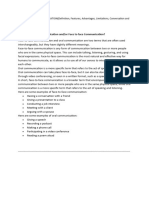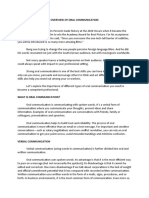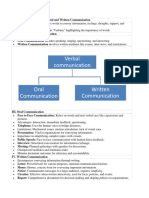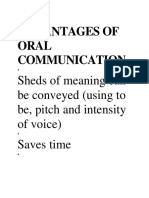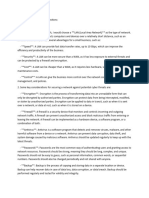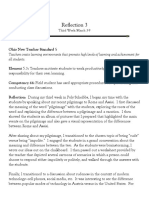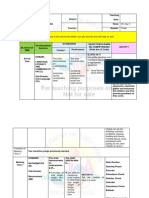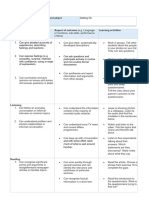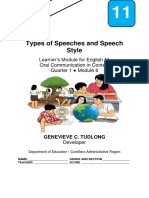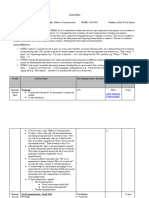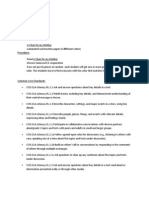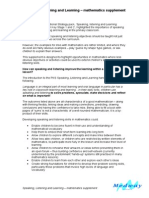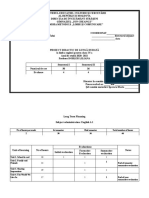0% found this document useful (0 votes)
60 views3 pagesEffective Communication Lesson 1
The document outlines the differences between oral and written communication, highlighting their respective advantages and disadvantages. Oral communication allows for immediate feedback and personal engagement but lacks permanence, while written communication provides a lasting record and clarity but is slower and less personal. It also offers tips for effective communication and conversation starters to enhance interpersonal interactions.
Uploaded by
Krey SalazarCopyright
© © All Rights Reserved
We take content rights seriously. If you suspect this is your content, claim it here.
Available Formats
Download as DOCX, PDF, TXT or read online on Scribd
0% found this document useful (0 votes)
60 views3 pagesEffective Communication Lesson 1
The document outlines the differences between oral and written communication, highlighting their respective advantages and disadvantages. Oral communication allows for immediate feedback and personal engagement but lacks permanence, while written communication provides a lasting record and clarity but is slower and less personal. It also offers tips for effective communication and conversation starters to enhance interpersonal interactions.
Uploaded by
Krey SalazarCopyright
© © All Rights Reserved
We take content rights seriously. If you suspect this is your content, claim it here.
Available Formats
Download as DOCX, PDF, TXT or read online on Scribd
/ 3


